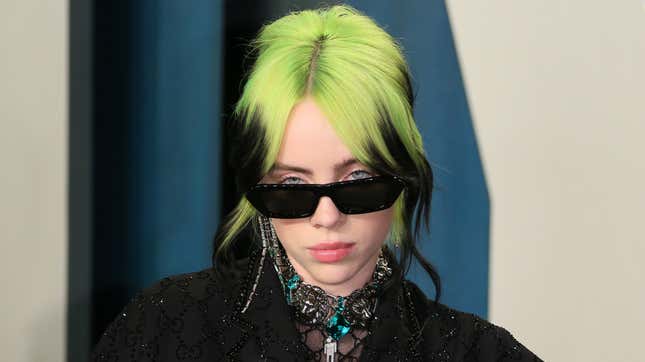Billie Eilish No Longer Reads the Comments, Which Must Be Nice
Latest

I started at Jezebel as a weekend blogger, which meant there were no editors or friends or co-workers to bounce headlines or blog topics off of. Just me, my dumb ideas, and the commenters who popped in to correct my spelling and tell me when my ideas were particularly dumb. It’s a weird feeling, relying on digital applause or jeers to parse whether or not one is doing a good job, but those weekends did have the added bonus of making me incredibly insensitive to namecalling and death threats, which would pop up no matter what I wrote. Eventually, I’d heard it all so many times, I became numb to it.
-

-

-

-

-

-

-

-

-

-

-

-

-

-

-

-

-

-

-

-

-

-

-

-

-

-

-

-

-

-

-

-

-

-

-

-

-

-

-

-








































